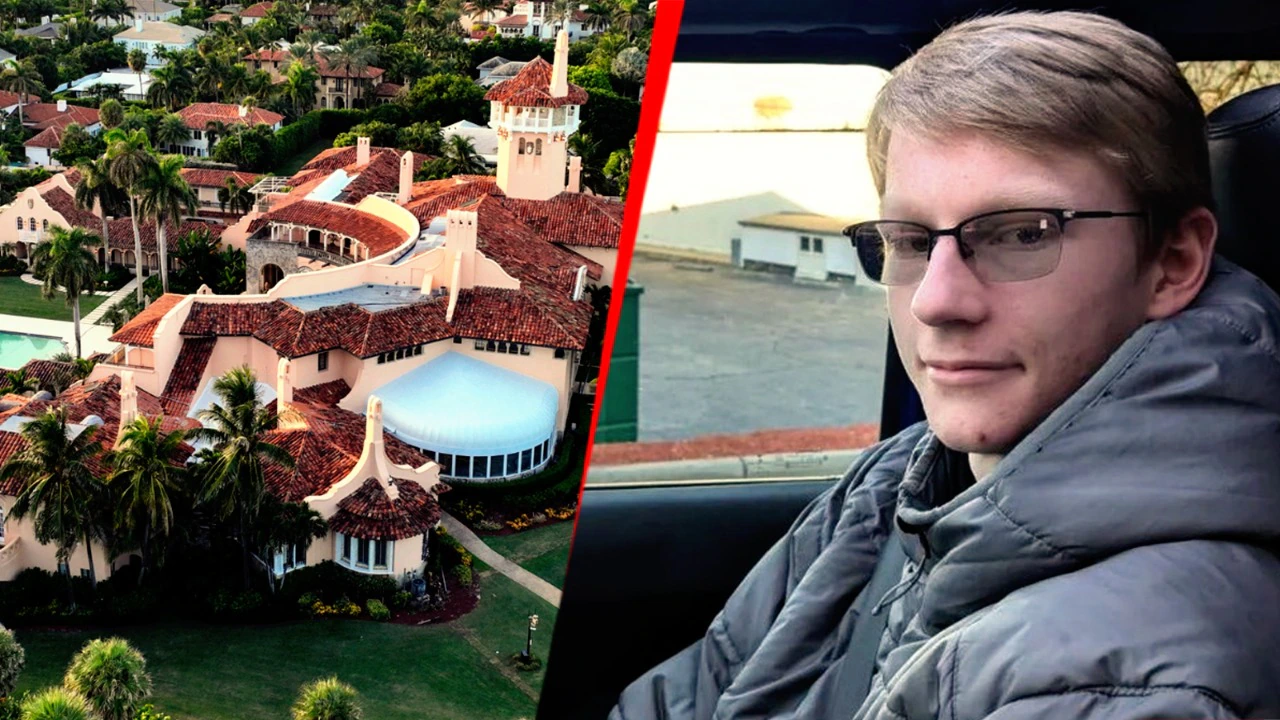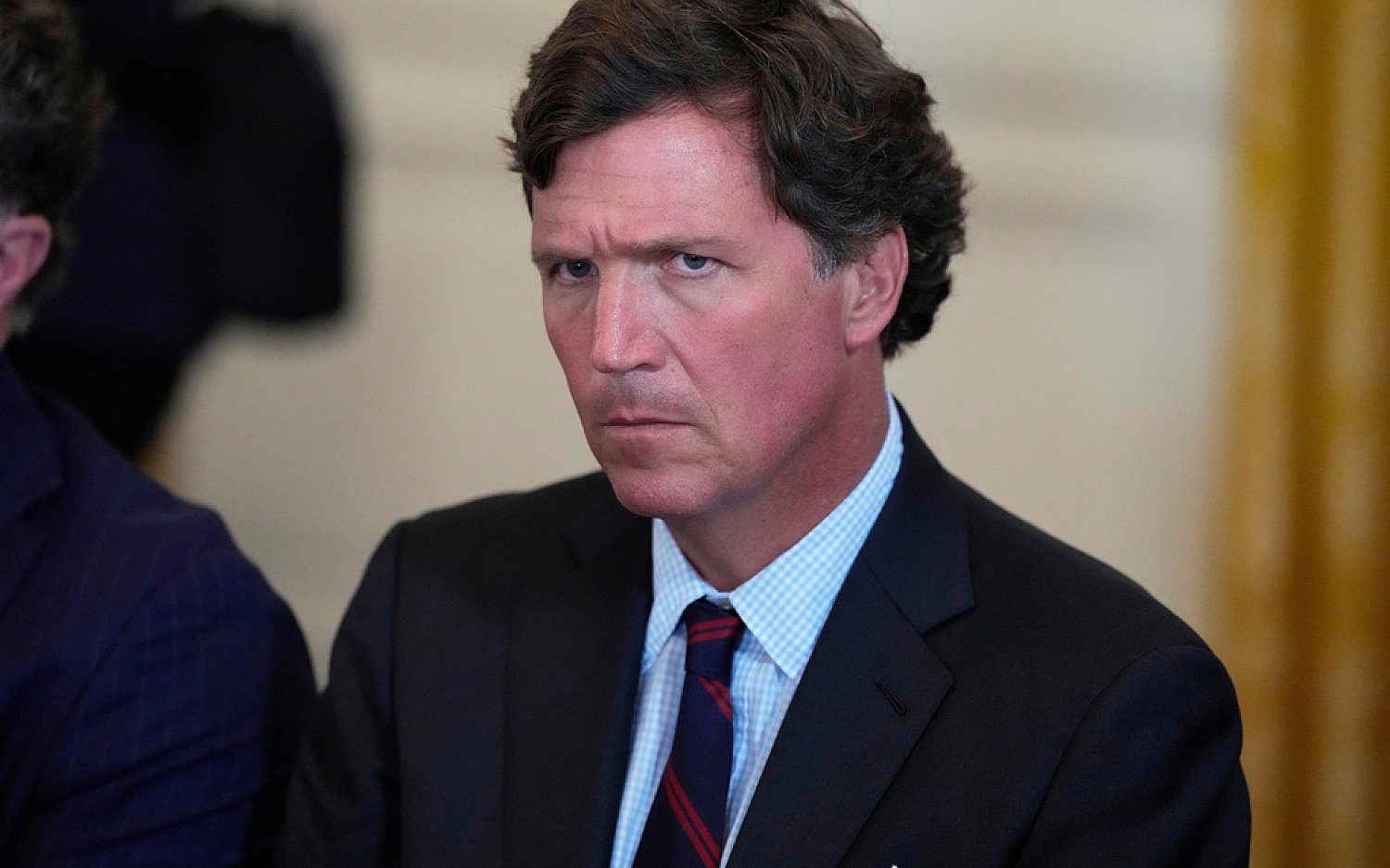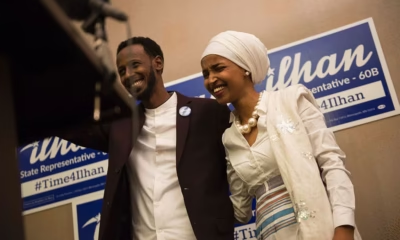News
Peace Prize Awared to Venezuela’s María Corina Machado

OSLO, Norway — The Norwegian Nobel Committee awarded the 2025 Nobel Peace Prize to María Corina Machado on Friday, a clear nod to democratic resistance and a quiet rejection of one of the world’s most divisive leaders. The Venezuelan opposition figure has inspired millions with a hard-line stance against Nicolás Maduro’s rule.
The announcement, buzzed about through betting chatter and political whispers, recognizes her drive for free elections and civil rights in a country crushed by repression, economic ruin, and widespread abuses. The timing, only days after U.S. President Donald J. Trump announced a delicate Gaza ceasefire, set off heated debate. Critics say the committee ignored a major U.S. diplomatic move because of bias against Trump.
Machado, 56, an engineer and former lawmaker often called the Iron Lady of Venezuela, was honored for promoting democratic freedoms and pushing for a peaceful shift from dictatorship to democracy. The committee’s citation praised her persistence.
Speaking from a secure location in hiding, after evading Maduro’s forces since a disputed July vote, she fought back tears during a video call with Nobel Institute Director Kristian Berg Harpviken. “Oh my God… I have no words,” she said, her voice breaking.
Machado Lives in Constant Danger
She has survived threats, attempts on her life, and a sweeping manhunt. Later on X, formerly Twitter, she dedicated the award to “the suffering people of Venezuela” and thanked Trump for “decisive support of our cause,” linking her struggle to the U.S. president’s foreign policy efforts.
The choice highlights her influence within a split opposition. Banned from running in the 2024 presidential race on contested corruption claims, she backed Edmundo González Urrutia.
His apparent win was tossed by Maduro’s electoral body, a move condemned by the U.S., the European Union, and many in Latin America. Her nationwide organizing kept nonviolent resistance alive, with huge rallies despite violent crackdowns. More than 7 million people have left Venezuela since 2015, creating one of the largest displacement crises outside war.
“Venezuela’s tragedy is a warning to the world about how peace collapses when democracy weakens,” said Jørgen Watne Frydnes, the committee’s chair, at the Oslo event.
He said Machado reflects the goals in Alfred Nobel’s will: fraternity between nations, disarmament, and convening peace efforts. “She unified a fragmented opposition and stood firm against the militarization of Venezuelan society,” he added.
The award carries 11 million Swedish kronor, about 1.05 million dollars, and will be presented on December 10 in Oslo. Her attendance is unclear, given her status as a fugitive under Maduro’s rule.
Trump Overshadowed
The honor also overshadowed the name that dominated prediction lists for months, President Trump. The 45th and 47th U.S. president, now in a second term, had pressed their case for recognition, calling their record unmatched on global stability.
This week, he announced a U.S.-brokered first phase ceasefire in Gaza, with hostage releases and aid routes, and called it the end of “the forever war in the Middle East.” Earlier this year, his team helped cool tensions between India and Pakistan.
He also leveled tough sanctions on Russian oligarchs, which supporters say nudged Moscow toward talks on Ukraine. Supporters described a scenario where he ends conflicts from Yemen to Sudan, then launches a “Global Harvest Initiative” to end hunger. Even in that case, they argue, the committee would still pass him over, given its past decisions.
Backers say this view comes from a history of bias. The Norwegian Nobel Committee, made up of former Norwegian politicians, is often cast as Eurocentric and progressive. Critics point to mixed calls over the years, from the controversy around Henry Kissinger’s award in 1973 to Barack Obama’s 2009 prize for diplomacy early in his first term.
Trump’s blunt style, “America First” approach, and exit from the Paris climate accord clashed with the committee’s emphasis on multilateral cooperation. People familiar with the nomination process, speaking on background, said Trump’s Gaza work drew attention among allies, but worries about trade wars and inflammatory rhetoric weighed more. “For them, peace is not just about stopping wars, it is about values,” said one diplomat in Oslo.
Trump Deserves Credit
Expectation around Trump was high, fueled partly by Trump himself. At a May rally in Ohio, he said, “I’ve done more for peace than anyone since Carter, maybe Wilson. The Nobel? It’s coming, folks, believe me.” Allies, including Sen. Marco Rubio, pushed a nomination letter calling him “the dealmaker the world needs.” Machado also credited Trump’s sanctions for weakening Maduro’s grip in earlier interviews.
A September Pew Research poll found that 62 percent of Americans thought Trump deserved credit for Middle East progress, a view echoed in conservative media. Betting markets then swung to Machado overnight, from single digits to heavy favorite, prompting a probe into potential leaks. After the announcement, the White House responded briefly, “While we congratulate Ms. Machado, this decision places politics over peace.”
Anger on the left toward Trump has soared after his 2024 win and battles over the Supreme Court. Progressive outlets like The Guardian dismissed his nomination as self-promotion. European NGOs lobbied the committee with petitions against him.
A 2025 YouGov survey found unfavorable views among U.S. liberals at 92 percent, near post-Watergate Nixon levels. In Oslo’s political circles, that mood translated into a flat no. “The committee values quiet heroism over bombast,” a spokesperson said. Critics called it elitist gatekeeping.
Trump Congratulates Machado on Peace Prize
Despite the snub, Trump made a courteous move. According to CBS News, he called Machado on Friday evening to congratulate her. “You deserve this more than anyone. Keep fighting, and know America’s got your back,” he told her. He then reposted her message on Truth Social, writing, “Honored. María is a warrior for freedom.
Together, we’ll make Venezuela great again!” The exchange showed a rare pairing, Trump’s hard-nosed approach aligning with Machado’s moral stand. Francisco Palmieri, the U.S. Ambassador to the OAS, said the call showed “strategic solidarity” against authoritarian rulers in the region.
The news ricocheted across Venezuela. State media in Caracas called the award a “right-wing plot.” Opposition areas erupted in cautious celebration, with fireworks in Maracaibo and graffiti in Valencia reading, “María Nobel, Maduro Out.”
The decision will likely sharpen calls to isolate Maduro. The EU signaled new sanctions, and Brazil’s President Lula da Silva urged dialogue, despite his reluctance to confront Maduro. For exiles in Miami and Madrid, the prize felt like vindication after years of hunger, hyperinflation, and mass arrests.
As attention shifts to the ceremony, Machado’s path stands out. She is a mother of two who left business life for street protests and daily risk. Her prize is not just a medal, it is a signal boost for Venezuelans who feel forgotten.
Trump, ever mindful of status, may bristle at the outcome. Yet in Machado’s public thanks, he found a nod to his role. In a world still scarred by conflict, the award suggests that defenders of democracy, not only dealmakers, help light the way.
Related News:
Trump’s Ukraine Peace Push Met with Mainstream Media Maelstrom
News
Austin Tucker Martin Who Was He And Why Was He at Mar-a-Lago?

PALM BEACH, Florida – A serious security incident took place early Sunday morning, February 22, at President Donald Trump’s Mar-a-Lago resort. U.S. Secret Service agents, working with Palm Beach County deputies, fatally shot 21-year-old Austin Tucker Martin of Cameron, North Carolina.
Officials say Martin crossed into a secure area while carrying a shotgun and a fuel can, which triggered an immediate law enforcement response. At the time, President Trump and First Lady Melania Trump were in Washington, D.C., at the White House, so they were not at risk.
The shooting adds to ongoing concerns about security tied to the president, after assassination attempts reported in 2024. Investigators are still working to understand what drove the breach, and the FBI is leading the case. Officials have described the event as an unauthorized entry that turned into a possible threat.

Who Was Austin Tucker Martin?
Austin Tucker Martin was 21 and lived in Moore County, North Carolina. Family members and people who knew him described him as quiet and creative, and they said they were unaware of any violent past or political extremism.
- Life in Cameron: Martin lived with his parents and older brother in Cameron, a small town with a population of about 244, based on the 2020 Census. He had finished high school and recently started a small art business that focused on hand-drawn golf course artwork.
- What relatives said: Family members described him as calm and non-aggressive. His cousin, Braeden Fields, told reporters Martin “doesn’t even know how to use a gun. He’s never used a gun.” Fields also said Martin didn’t show much interest in politics and never seemed drawn to weapons or extreme views.
- Home and community reaction: Public records list him at a four-bedroom, ranch-style home. Neighbors in the area said they felt stunned by the news, especially since his family reported him missing only hours before the incident.
The family reported Martin missing to Moore County authorities around the same period as the breach. Some reports say he may have traveled south and obtained the shotgun along the way. The Moore County Sheriff’s Office has not reported any known criminal history for him.

What Happened at Mar-a-Lago
Authorities say the incident happened shortly after 1:30 a.m. Security spotted someone entering the inner perimeter near the north gate as another vehicle was leaving.
- Two U.S. Secret Service agents and a Palm Beach County sheriff’s deputy confronted Martin.
- Officials say he had what appeared to be a shotgun and a gas can (fuel can).
- Officers ordered him to drop the items.
- Sheriff Ric Bradshaw said Martin put the gas can down, but then raised the shotgun into a “shooting position.”
- The agents and deputy fired, and Martin died at the scene.
- No officers were hurt.
- Investigators later found a weapon box in Martin’s vehicle.
The Secret Service said agents acted to protect the secured area. Since Trump was not at Mar-a-Lago, no protectees were directly threatened.
Family Reaction: Grief and Confusion
Relatives spoke publicly in the hours after the shooting and said they could not understand how the situation happened.
- Braeden Fields told several outlets, including ABC affiliate WTVD, that Martin’s actions didn’t match who he was. Fields said he was “shocked” and described Martin as gentle and inexperienced around guns.
- The family began searching after reporting him missing on February 21 or early February 22, and they did not know he had traveled to Florida.
- Neighbors in Moore County said the news hit hard, since the family had recently asked for help finding him.
- Public comments from his parents have been limited so far, but relatives have described deep grief and confusion.
Investigators are also looking into possible mental health issues or other personal factors, since relatives say his behavior did not fit the usual pattern of political threats.
What the FBI and Secret Service Have Said
Federal and local officials moved quickly to confirm the shooting and explain the response.
- Secret Service spokesman Anthony Guglielmi said agents and a local deputy shot an intruder after he presented an immediate threat.
- The agency said no protectees were on the property, and officers contained the breach quickly.
- The FBI is leading the investigation and publicly identified Martin, while noting that details remain limited during the active case.
- The FBI National Press Office said agents are building a psychological profile and asked nearby residents to check security video that could help.
- Sheriff Bradshaw described the timeline in a press briefing and said officers fired only after Martin raised his weapon.
For now, investigators have not confirmed ties to any broader plot or organized group. As the FBI and Secret Service continue their review, the death of Austin Tucker Martin, a young artist from rural North Carolina, leaves painful questions about what changed so quickly and how a security response ended in tragedy.
Trending News:
Tech Titans Flee California to Low-Tax Havens Like Florida
News
Tucker Carlson Attacked By Pro-Israel Groups Over Airport Detention Claims

TEL AVIV – A fast-moving dispute has split parts of the American right after political commentator Tucker Carlson said Israeli security officials at Ben Gurion International Airport detained him and members of his production crew. Carlson said the airport incident happened soon after he filmed a tense interview with U.S. Ambassador to Israel Mike Huckabee on February 18, 2026.
Carlson, who often criticizes U.S. foreign policy and continued military and financial support for Israel, called the encounter “bizarre” and hinted it may have been political. Israeli officials, along with Huckabee, rejected that framing and said the interaction followed normal security steps and was handled privately.
The Alleged Incident at Ben Gurion Airport
Carlson said he flew to Israel to record an interview with Huckabee inside the airport. He also said he never left the Ben Gurion complex before boarding a private flight out. In comments shared with outlets including The Daily Mail and The New York Post, Carlson claimed:
- Airport staff took passports from him and his team.
- His executive producer was taken into a separate room.
- Security officers questioned them about the Huckabee interview, including “what we spoke to Ambassador Huckabee about.”
He described the experience as out of the ordinary and suggested it may have been a response to his tough questions during the interview. Later, in a follow-up video posted on his own platform, Carlson repeated the claim and said producers got “the third degree.” He also said officials held their passports while asking about the conversation topics and their political views.
Israeli officials disputed Carlson’s account and offered a different version:
- The Israel Airports Authority (IAA) said Carlson and his group “were not detained, delayed, or interrogated.”
- The authority said staff “politely asked a few routine questions,” consistent with standard procedures used for many travelers.
- According to the IAA, the conversation took place in a VIP lounge for privacy, not as punishment.
On social media, Ambassador Huckabee backed that explanation. He said passport checks and security questions are common for people arriving in or leaving Israel.
Meanwhile, security footage circulated online and spread quickly. The clips show Carlson smiling, signing documents, posing for photos with airport staff, and hugging an employee. Critics say those images clash with the idea of a hostile detention.
Backlash from Pro-Israel Factions
Tucker Carlson’s story triggered a sharp reaction from pro-Israel voices across social media and the press. Many accused him of stretching the facts or making the situation sound worse to stir anti-Israel sentiment.
- Former Israeli Prime Minister Naftali Bennett insulted Carlson and accused him of inventing the harassment claim after only a short airport stop.
- Pro-Israel groups and commentators pointed to the episode as another example of what they call Carlson’s ongoing hostility toward Israel.
- Outlets such as The Jerusalem Post and Times of Israel highlighted the footage and argued it undercuts the “detention” storyline, with some calling the controversy a publicity play.
The argument also revived older claims that Carlson promotes antisemitic ideas, especially because he regularly challenges U.S. aid and support for Israel’s military actions. Critics often cite:
- His comment described Christian Zionism as a “brain virus.”
- His interviews with figures accused of antisemitism.
- He claims that pro-Israel lobbying groups have undue influence in U.S. politics.
In late 2025, one advocacy group labeled Carlson its “Antisemite of the Year” after he criticized Israel’s actions in Gaza and drew attention to AIPAC’s role in Washington. Carlson has rejected the label and says his views come from “America First” politics, not prejudice.
The Contentious Huckabee Interview
The airport dispute soon took over the news cycle, but it was also tied directly to the interview itself, which came out shortly after the travel incident. During the more than two-hour conversation, Carlson pressed Huckabee on several topics, including:
- U.S. military aid to Israel during ongoing conflicts
- Religious arguments used to support territorial claims
- Treatment of Christians in the region
- Risks of wider escalation in the Middle East, including with Iran
At one point, Carlson challenged Huckabee over whether he places Israel’s interests above America’s. That exchange turned heated. Huckabee defended strong, consistent U.S. backing for Israel, while Carlson argued that the alliance can drain resources and pull the United States into conflicts it doesn’t need.
The discussion also put a spotlight on a growing split within Republican and conservative circles over Israel policy. In that debate, Carlson often represents a more isolationist camp that distrusts foreign commitments.
Tucker Carlson’s Evolving Stance on Israel
Carlson has long opposed open-ended U.S. involvement overseas. Since leaving Fox News, he has sharpened his focus on Israel-related topics, including:
- The scale of U.S. aid, which he has described as funding Israel’s “war machine.”
- The influence of lobbying groups on U.S. lawmakers
- Arguments about divided loyalties and how U.S. leaders set foreign policy priorities
Supporters say these are fair questions about spending and alliances. On the other hand, critics say parts of his framing echo old antisemitic themes, especially when he hints at hidden control or undue influence.
Because of that history, the airport claims poured gasoline on an already tense fight. Pro-Israel critics argue Carlson played the victim to attack Israel, while his allies say the backlash proves powerful interests try to shut down dissent.
Reactions and Implications
Online reaction split along familiar lines:
- Pro-Palestinian and anti-intervention users praised Carlson for pushing hard questions.
- Pro-Israel commentators mocked the “detention” claim as routine screening and said he lied.
Overall, the episode shows how divided American conservatives have become on foreign policy, especially when Israel and U.S. aid come up. Carlson still reaches a huge audience, so these clashes keep shaping how people talk about alliances, military support, and political influence.
So far, neither Carlson nor Israeli officials have signaled additional steps. Still, the dispute has reopened scrutiny of Carlson’s rhetoric and where Americans draw the line between criticizing Israel and crossing into prejudice.
Related News:
Tucker Carlson and Staff Allegedly Detained in Israel, Claims Passports Were Taken
News
US Fighter Jets Scrambled to Intercept Russian Military Aircraft Near Alaska

ANCHORAGE, Alaska – NORAD launched U.S. fighter jets and support aircraft Thursday after detecting five Russian military planes operating inside the Alaskan Air Defense Identification Zone (ADIZ).
The encounter took place near the Bering Strait off Alaska’s west coast. Officials said the aircraft did not enter U.S. or Canadian sovereign airspace. Instead, they described the intercept as a regular air defense mission, not an escalation.
What NORAD tracked and intercepted
Early Thursday, NORAD sensors picked up and followed a small Russian formation. The command identified the aircraft as:
- Two Tu-95 Bear long-range bombers
- Two Su-35 fighter jets
- One A-50 airborne early warning and control aircraft (often compared to the U.S. E-3 Sentry)
The planes flew inside the Alaskan ADIZ, a buffer area in international airspace. Aircraft in this zone are expected to identify themselves so North American forces can keep track of activity near the border.

US aircraft involved in the response
After confirming the track, NORAD sent a mix of aircraft from Alaska and other locations, including:
- Two F-16 Fighting Falcon multirole fighters
- Two F-35 Lightning II stealth fighters
- One E-3 Sentry airborne warning and control aircraft
- Four KC-135 Stratotanker aerial refueling aircraft
US crews intercepted the group, visually confirmed each aircraft, and stayed with them until they left the ADIZ. The mission focused on observation and control, with no reported issues.
In its statement, NORAD said Russian flights in the Alaskan ADIZ happen often and are not viewed as a direct threat. The Russian aircraft stayed in international airspace for the full event.

Russian flights near Alaska are a regular pattern.
Intercepts like this have become a familiar part of Arctic and sub-Arctic operations, especially near the Bering Strait. That area matters because Russia and the United States sit only a few miles apart at their closest point.
Recent examples include:
- September 2025: NORAD tracked four Russian aircraft (Tu-95s and Su-35s) in the ADIZ, sending F-16s, an E-3, and KC-135 support.
- August 2025: US forces responded to multiple flights involving a Russian Il-20 reconnaissance aircraft over several days.
- Early 2025: Similar bomber-and-fighter packages operated near the zone during long-range training flights.
Russia often describes these sorties as scheduled training patrols over neutral waters, sometimes supported by aerial refueling. Meanwhile, US and Canadian forces treat them as chances to practice detection, identification, and escort procedures.
This latest intercept comes during a wider global strain and rising interest in the Arctic. Still, officials framed the flight as routine and contained.

Why the Alaskan ADIZ matters
The Alaskan ADIZ adds an early layer of warning beyond national airspace. It gives NORAD time to spot aircraft, confirm what they are, and respond in an organized way.
NORAD is a joint US-Canadian command based at Peterson Space Force Base in Colorado. Its air defense toolkit includes ground-based radars, fighter units, airborne surveillance, and coordination with partners.
The aircraft mix used in this intercept reflects that layered approach:
- F-35 Lightning II: Stealth fighters with advanced sensors for safe intercept and tracking.
- F-16 Fighting Falcon: Flexible fighters commonly used for identification and escort.
- E-3 Sentry: Airborne radar and command platform for broad-area awareness.
- KC-135 Stratotanker: Refueling support that keeps jets on station longer in remote areas.
Together, these assets help NORAD keepan eyes on approaching aircraft without raising the temperature.
What it signals amid rising Arctic attention
Even when flights stay professional, they show how active the Arctic has become. As sea ice changes, interest has grown in new routes and resources, and Russia has expanded its military footprint in the region. That has kept US and NATO planners focused on northern defense.
NORAD’s quick response reinforced that North American approaches will be monitored and managed. Officials reported no unsafe maneuvers and no communication problems, matching the tone of many past intercepts.
The mission ended normally, with the Russian aircraft leaving the ADIZ as expected. This report is based on NORAD’s official release and defense sources confirming details of the February 19-20, 2026, event.
Trending News
Tulsi Gabbard’s Explosive Revelations on Russia Collusion Hoax Shake Washington
-

 Crime2 months ago
Crime2 months agoYouTuber Nick Shirley Exposes BILLIONS of Somali Fraud, Video Goes VIRAL
-

 China4 weeks ago
China4 weeks agoChina-Based Billionaire Singham Allegedly Funding America’s Radical Left
-

 Politics3 months ago
Politics3 months agoIlhan Omar’s Ties to Convicted Somali Fraudsters Raises Questions
-

 News3 months ago
News3 months agoWalz Tried to Dodges Blame Over $8 Billion Somali Fraud Scandal
-

 Crime3 months ago
Crime3 months agoSomali’s Accused of Bilking Millions From Maine’s Medicaid Program
-

 Crime3 months ago
Crime3 months agoMinnesota’s Billion Dollar Fraud Puts Omar and Walz Under the Microscope
-

 Politics2 months ago
Politics2 months agoIlhan Omar Faces Renewed Firestorm Over Resurfaced Video
-

 Business2 months ago
Business2 months agoTech Giant Oracle Abandons California After 43 Years








































